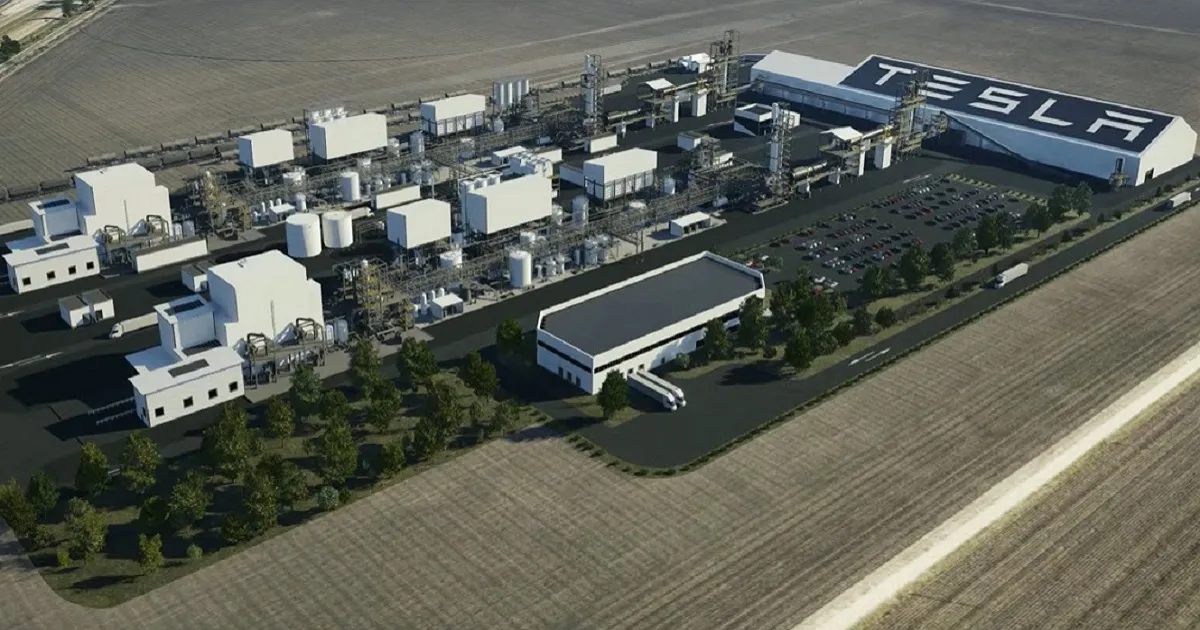Introduction to the Lithium Refining Business
Lithium Refining Business has rapidly become one of the most valuable resources of the 21st century. As the global shift towards renewable energy sources and electric vehicles (EVs) accelerates, demand for lithium — a critical component in lithium-ion batteries — has surged. The lithium refining business, therefore, has emerged as a high-growth industry, with companies and countries investing heavily in refining operations to meet the swelling demand. This article explores the essentials of the lithium refining business, highlighting its importance, challenges, and potential growth opportunities.
The Importance of Lithium in Modern Technology
Lithium is the lightest metal and is highly reactive, making it ideal for energy storage solutions. Its usage spans multiple industries, with the most significant demand coming from the EV market and energy storage solutions, which rely on lithium-ion batteries for efficient energy storage. Beyond automotive, lithium-ion batteries are essential for smartphones, laptops, tablets, and grid energy storage systems. This widespread use underscores the critical role of lithium refining in sustaining technological advancements and supporting global environmental initiatives.
The Lithium Supply Chain: From Extraction to Refining
The lithium refining business is part of a complex supply chain that begins with lithium extraction and ends with the production of lithium hydroxide or lithium carbonate — compounds essential for battery manufacturing. Lithium can be extracted from two primary sources: brine (salt flats) and hard rock (spodumene deposits). Once extracted, it undergoes rigorous refining to achieve the purity levels necessary for high-performance batteries.
The refining process involves multiple stages, including crushing, grinding, leaching, purification, and finally, converting lithium into compounds like lithium carbonate or hydroxide. Each step is both resource-intensive and technically demanding, with the refining stage playing a critical role in determining the quality and performance of the final lithium product.
Key Players in the Lithium Refining Business
The lithium refining business is dominated by a few major players, including Albemarle Corporation, Sociedad Química y Minera de Chile (SQM), and Ganfeng Lithium. These companies have established a stronghold in the lithium refining market, often securing exclusive supply agreements with battery manufacturers and EV producers. However, as demand for lithium continues to rise, smaller companies and startups have begun entering the lithium refining business, often focusing on innovative technologies and sustainable methods to differentiate themselves in a competitive market.
Countries such as China, Australia, and Chile have also become prominent players in the lithium refining business. China, in particular, dominates the global lithium processing industry, producing over 80% of the world’s battery-grade lithium compounds. Australia’s hard rock mines provide a significant amount of spodumene concentrate, refined into lithium products, while Chile and Argentina are known for their vast lithium brine resources.
Investment Opportunities in the Lithium Refining Business
The lithium refining business presents significant investment opportunities driven by the global transition toward green energy. The demand for lithium-ion batteries is expected to increase as countries implement stricter environmental regulations and incentivize electric vehicle adoption. Consequently, investors are flocking to lithium refining projects to capitalize on this upward trend.
Additionally, governments are offering incentives for local lithium refining operations to secure supply chains and reduce reliance on imports. For instance, the United States has announced investments to bolster its domestic lithium production and refining capabilities, aiming to reduce dependence on Chinese imports.
For investors, the lithium refining business offers a dual benefit: financial returns and alignment with sustainability goals. However, investing in lithium refining also requires consideration of environmental concerns, technical risks, and regulatory challenges that may affect project profitability and sustainability.
Challenges Facing the Lithium Refining Business
While the lithium refining business is lucrative, it faces several challenges that companies must navigate to remain competitive and sustainable.
1. Environmental Impact
The lithium refining process is water- and energy-intensive, raising concerns about environmental sustainability. Lithium extraction from brine sources consumes large amounts of water, which can lead to water scarcity in arid regions like the Atacama Desert in Chile. Refining lithium from hard rock, on the other hand, requires substantial energy, often derived from fossil fuels, leading to a considerable carbon footprint.
2. Regulatory Hurdles
Many countries have stringent environmental regulations governing the lithium refining business. Companies must comply with water management, air quality standards, and waste disposal practices, which can add to the operational costs. For instance, Chile has implemented water-use restrictions on lithium extraction projects to protect local ecosystems, adding regulatory complexity for lithium producers.
3. Technical and Logistical Challenges
The lithium refining business is capital- and expertise-intensive. Refining requires specialized technology, skilled labor, and rigorous quality control to produce battery-grade lithium. Logistical challenges, such as transporting lithium compounds to battery manufacturing facilities and managing supply chain disruptions, can also impact profitability.
4. Price Volatility
Lithium prices have shown considerable volatility in recent years due to fluctuations in demand and supply. High demand for EVs has driven up prices, but market uncertainties, such as potential oversupply or shifts in battery technology, can lead to sudden price drops. This volatility creates financial risks for companies operating in the lithium refining business, especially those reliant on long-term supply contracts.
Technological Innovations in Lithium Refining
Technological advancements are shaping the future of the lithium refining business. New lithium extraction and refining methods are being developed to improve efficiency, reduce environmental impact, and increase yield.
One of the most promising innovations is direct lithium extraction (DLE) technology, which uses chemical processes to extract lithium from brine in a more efficient and environmentally friendly manner. DLE can potentially reduce water usage and carbon emissions, making it an attractive option for lithium producers looking to adopt sustainable practices.
Another advancement in the lithium refining business is recycling used lithium-ion batteries. Recycling can supplement primary lithium sources, reduce environmental impact, and help stabilize lithium prices. As battery recycling technology improves, the lithium refining business will likely incorporate more recycled material, creating a circular supply chain and further supporting sustainability goals.
Future Prospects for the Lithium Refining Business
The lithium refining business is expected to grow significantly over the next decade. The increasing demand for EVs, renewable energy storage, and portable electronics will continue to drive lithium demand, creating growth opportunities in the lithium refining sector.
Geopolitical factors are also likely to influence the future of the lithium refining business. Countries increasingly prioritize lithium production and refining to secure supply chains and support green initiatives. Governments in Europe, the US, and Asia actively invest in lithium projects to reduce dependence on Chinese refineries and encourage domestic production.
Furthermore, advancements in battery technology, such as solid-state batteries, may impact the lithium refining business by creating demand for lithium in new forms or compounds. While still in the research phase, solid-state batteries are expected to offer higher energy density, longer lifespan, and improved safety compared to traditional lithium-ion batteries.
Conclusion: The Evolving Landscape of the Lithium Refining Business
The lithium refining business is a critical component of the modern technological ecosystem. With growing demand from the EV and renewable energy markets, lithium refining offers considerable financial and strategic benefits. However, it also presents several challenges, including environmental impact, regulatory hurdles, and price volatility.
As technology advances and new refining techniques emerge, the lithium refining business will likely become more efficient and environmentally sustainable. This industry offers investors, businesses, and governments an opportunity to shape a greener future.



